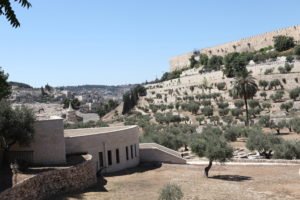Historical studies of the books of Samuel, along with archaeological findings, allow us to approach the time period in which the biblical narratives about the origins of the monarchy are situated. The book of Judges, in chapters six through nine, alludes to a series of traditions about Gideon and Abimelech which reveal the initial Israelite attempts to erect a king, thus imitating neighboring peoples. After Gideon’s victory over the Midianites, the men of Israel offered dynastic kingship to Gideon, but he rejected it: ‘The LORD must rule over you’ (Jdg 8:23). Upon Gideon’s death, Abimelech presented his monarchical pretensions to the inhabitants of Shechem (cf. Jdg 9:1-3) and managed to have himself proclaimed king. However, he soon encountered conflicts and ended up massacring the population and destroying the city (Jdg 9:42, 25).
The resistance to someone proclaiming themselves king arises from the belief that only the Lord is the king of his people, as Gideon’s above mentioned words manifest, and therefore there should be no one claiming that honor for themselves.

Olive trees, Jerusalem
A very ancient testimony of the feelings aroused by the debate over whether to establish the monarchy is the speech of Jotham, one of the few biblical texts that narrates a fable, that of the trees arguing about their king: the worthy and noble trees like the olive, the fig, or the vine, renounce being kings, while the thornbush is the only one that presents its candidacy, and in a presumptuous manner (Jdg 9:7-15). Only the one who is of no use and has nothing to offer to others, has ambitions to rule and have power.
However, the need to confront Philistine expansionism called for the establishment of centralized power around the figure of a king. Despite the rupture of the traditional status that this implied, the idea began to arise of imitating the model of neighboring nations, and entrusting to a single person, the king, the authority needed to recruit forces, and take up the mission of leading the war with a professional army. This desire on the part of the people, after various vicissitudes, would be ratified by the Lord through Samuel (cf. 1 Sam 8:7-9).
The most serious attempts to establish a stable monarchy focus on Saul, a young warrior from the tribe of Benjamin. He was a warrior who towered head and shoulders above all the other Israelites, a charismatic hero like the judges who had preceded him. In his time, the threat of the Philistines was becoming increasingly pressing, and a unitary government of the tribes was necessary. After his victory against the Ammonites, Saul was proclaimed king in Gilgal (1 Sam 11:15).

Rembrandt, Saul by Sailko
Saul established his court in Gibeah, his hometown, about five kilometers north of Jerusalem. There he built a palace-fortress, of rather crude construction, although relatively well fortified.
However, Saul lost the favor of the Lord due to his disobedience, and soon the figure of David began to emerge.
By don Francisco Varo Pineda, Priest
